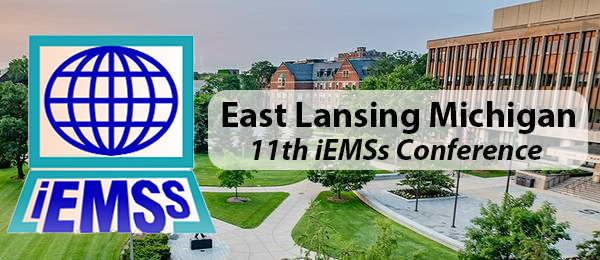Keywords
adaptation strategy; climate change; farmer decision; Land use change; regional coordination
Start Date
7-7-2022 12:20 PM
End Date
7-7-2022 12:40 PM
Abstract
he Mekong Delta area will be deeply impacted by effects of climate change, but also of salinization, sand mining, and underground water extraction, inducing changes and adaptations at individual (mainly farmers) and institutional (province and region) levels. In the Vietnamese Mekong Delta, local provinces play an important role in the decision of adaptation strategies and resource exploitation management. In addition, as some provinces can share agro-ecological regions, the coordination of provinces’ actions appear to be a necessary factor to adapt efficiently to climate change issues. This paper aims to develop an Agent–Based model for land use change adaptation strategies modeling (named LUCAS). LUCAS is based on a combination of social, economic, and environmental dynamics. It simulates land-use change and can test various land use adaptation strategies in the context of climate change. LUCAS simulates the complex interactions amongst individual and provincial decision-makers to build appropriate adaptation strategies of land-use change. The experiment results showed a picture of land-use in the Mekong Delta by 2030, with a vision through to 2050 in order to adapt to climate change based on coordination by the regions and individual adaptation of farmers. The results showed that the model can provide the ways for adaptation planning.
LUCAS: an Agent-Based model for Understanding Adaptation Strategies in the Mekong Delta
he Mekong Delta area will be deeply impacted by effects of climate change, but also of salinization, sand mining, and underground water extraction, inducing changes and adaptations at individual (mainly farmers) and institutional (province and region) levels. In the Vietnamese Mekong Delta, local provinces play an important role in the decision of adaptation strategies and resource exploitation management. In addition, as some provinces can share agro-ecological regions, the coordination of provinces’ actions appear to be a necessary factor to adapt efficiently to climate change issues. This paper aims to develop an Agent–Based model for land use change adaptation strategies modeling (named LUCAS). LUCAS is based on a combination of social, economic, and environmental dynamics. It simulates land-use change and can test various land use adaptation strategies in the context of climate change. LUCAS simulates the complex interactions amongst individual and provincial decision-makers to build appropriate adaptation strategies of land-use change. The experiment results showed a picture of land-use in the Mekong Delta by 2030, with a vision through to 2050 in order to adapt to climate change based on coordination by the regions and individual adaptation of farmers. The results showed that the model can provide the ways for adaptation planning.



Stream and Session
false